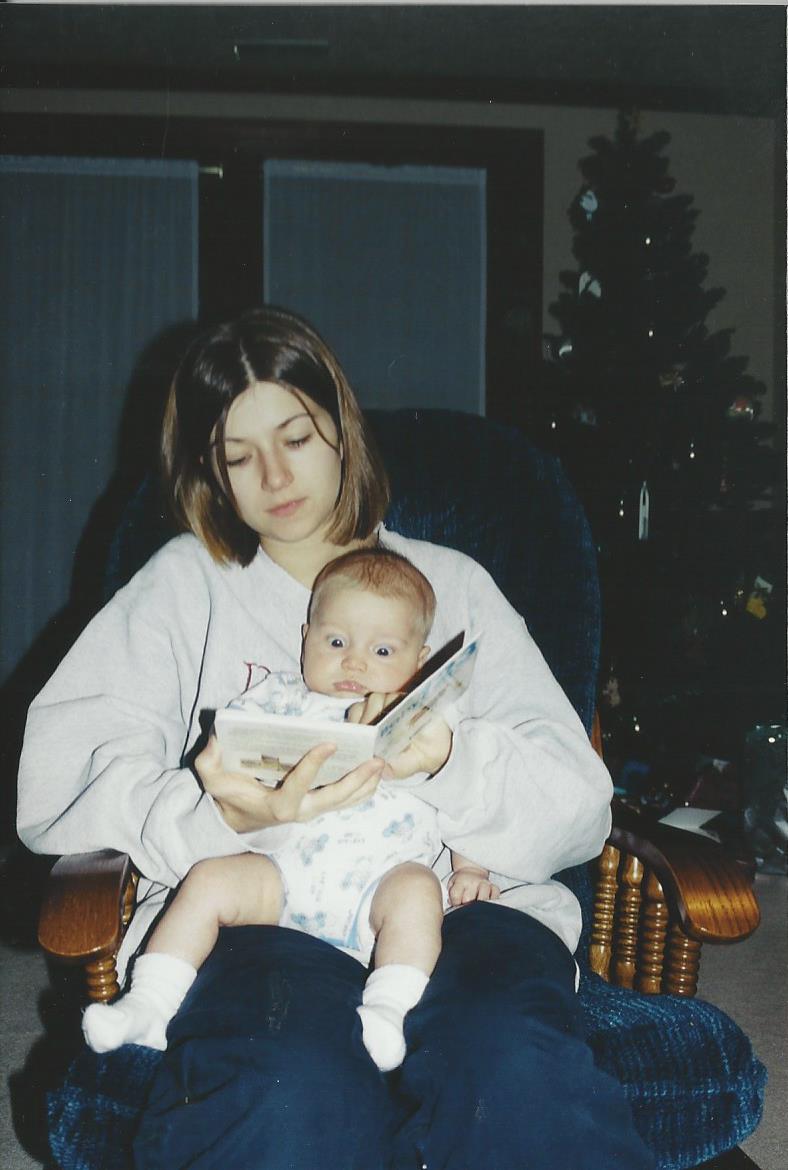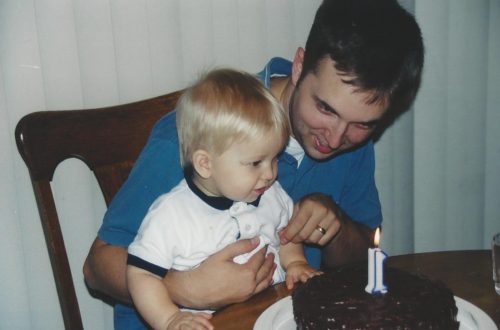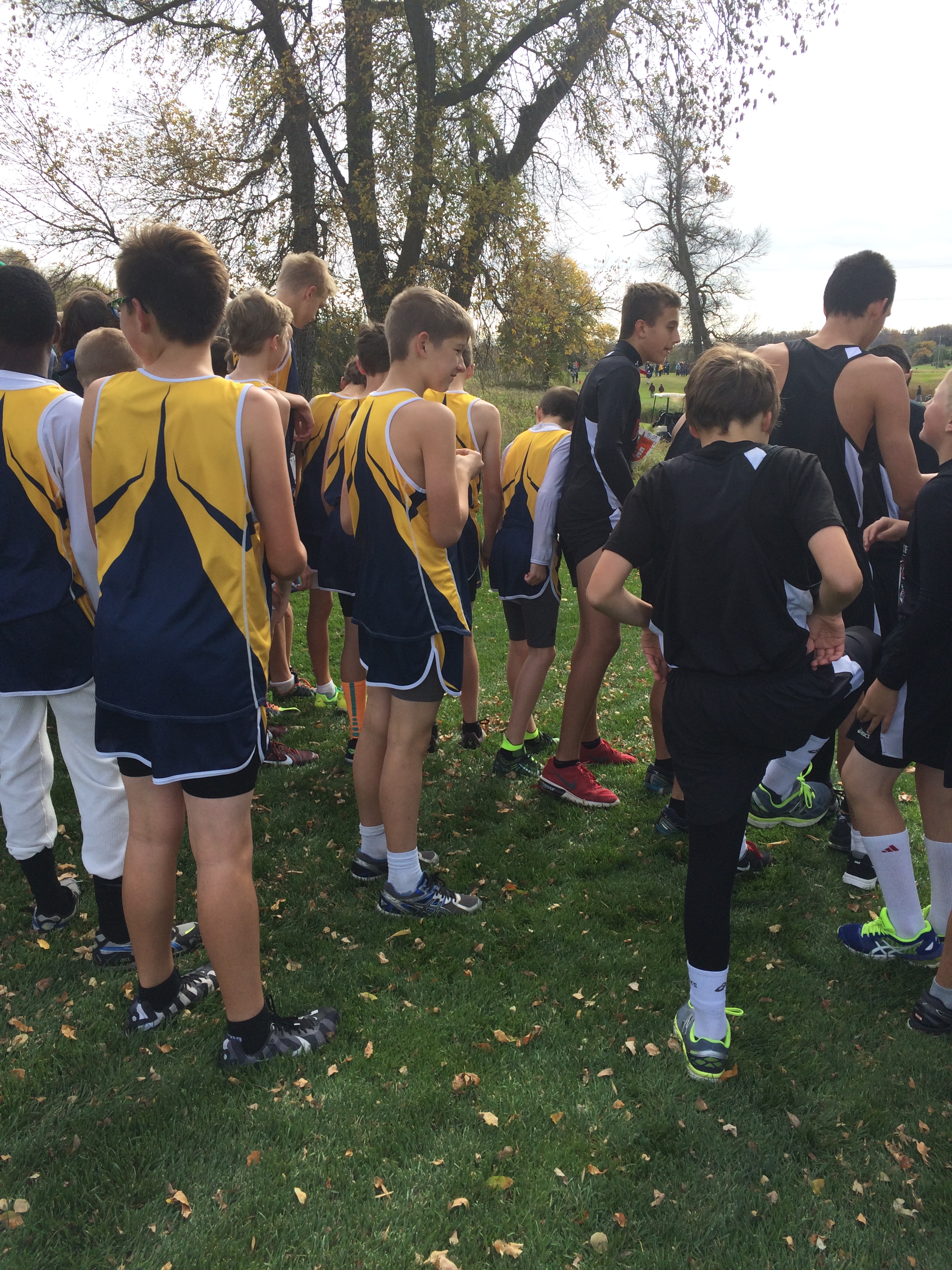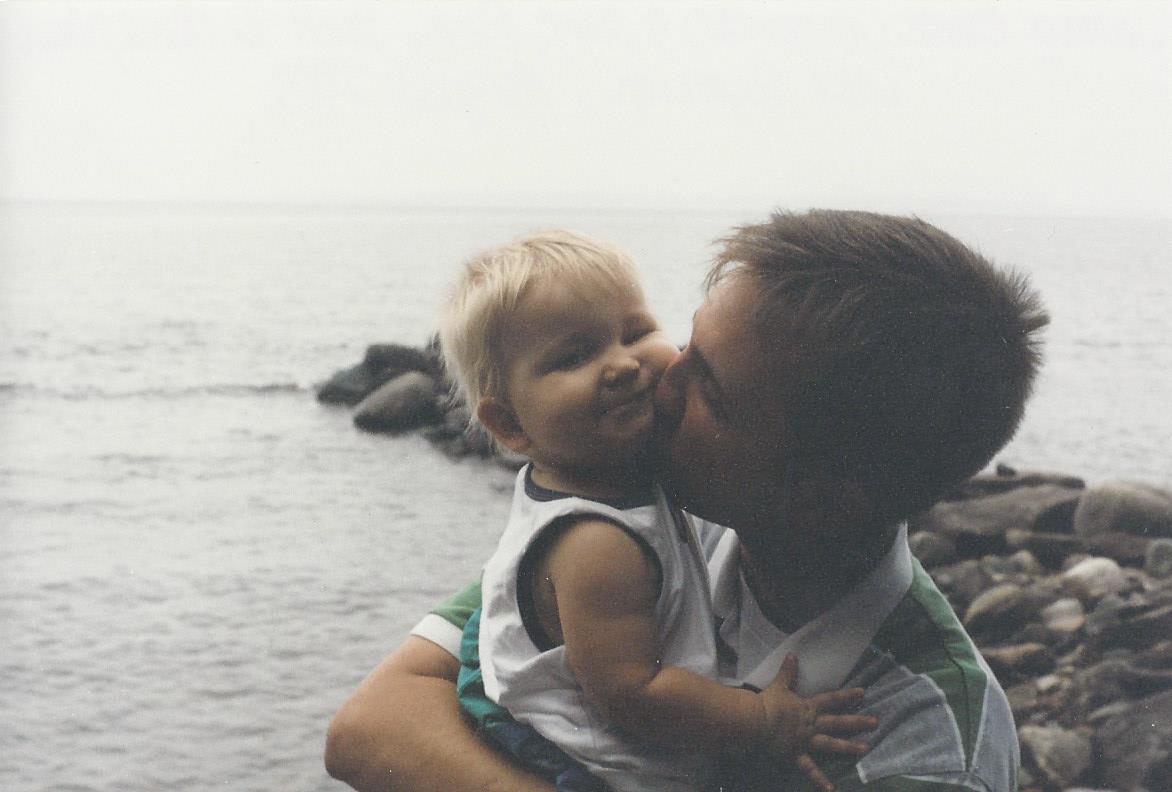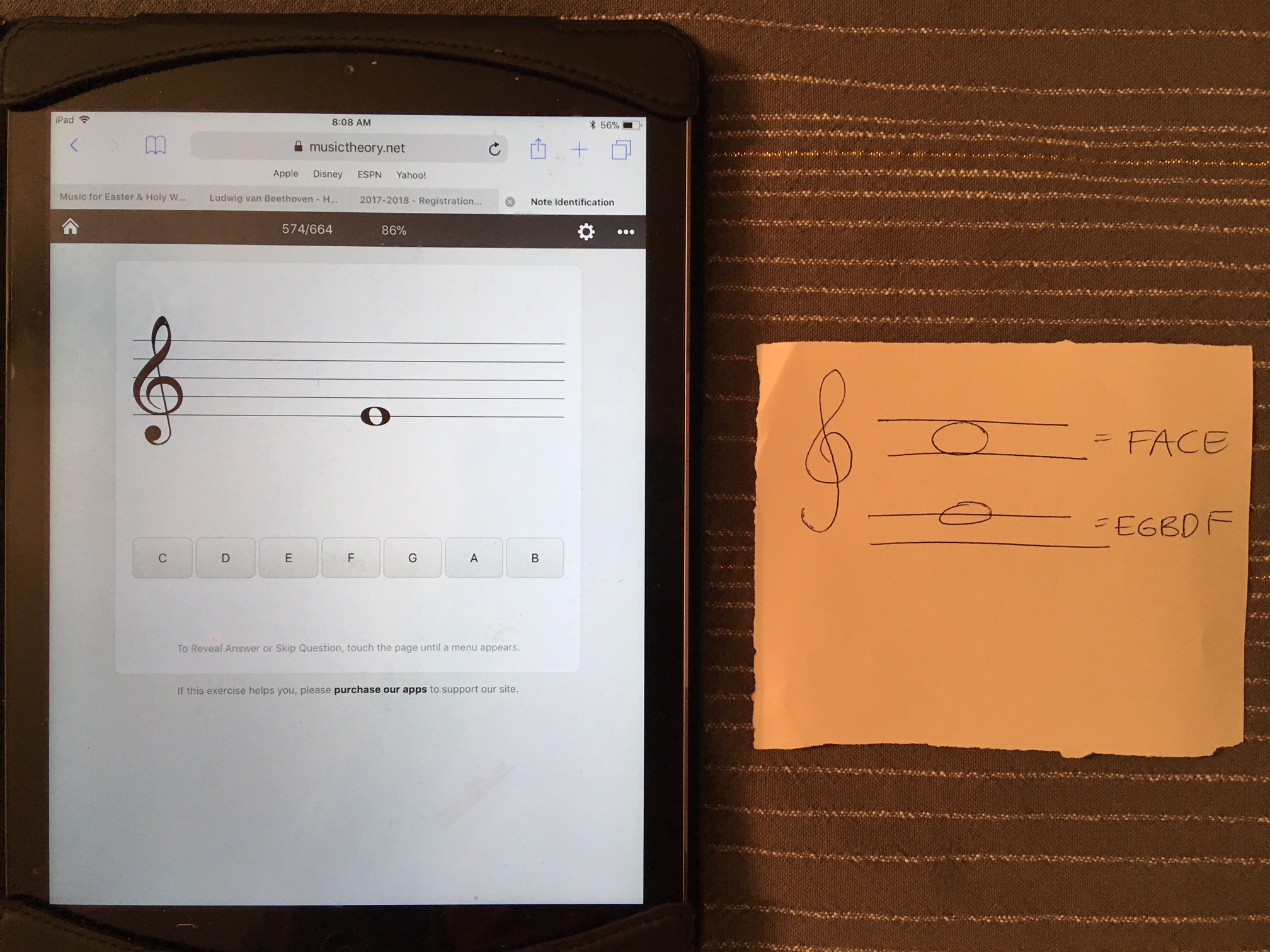
Two Incredible Surprises that Emerged from Finals Week
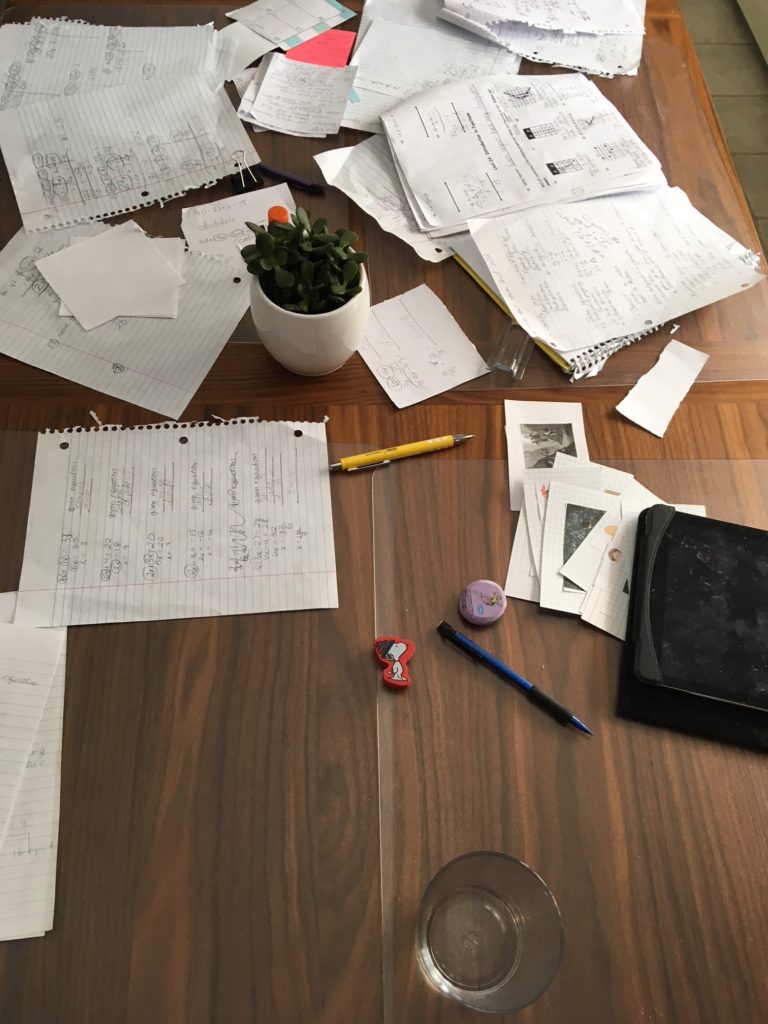
Like all things autism, the strategies for finals week were thought out long in advance.
Back in December, J’s teachers sent home various forms of “study guides” the last few days before break so we could get a head start on studying for January finals, and we took FULL advantage of that.
Over the break, J and I read all the short stories again. I made DOZENS of flash cards for English vocab, Foods vocab. I made picture cards for the short stories and we worked on those every single day of the break. No rest for the wicked, I guess.
When J returned after the break, J’s special ed teacher prepped him about the changes in schedule for those three intensive testing days, informing him of which para would be with him for each test, which room he would take each test (in brand new classrooms including the band room), talked about the changes in lunch and how he would be going back and forth from home and school–sometimes multiple times a day–during those 3 days of testing. We communicated about adjustments and accommodations we thought would work well for J for those days. We were well armed and prepared for those three days.
I knew that this whole process would be overwhelming for J. The change of scheduling alone would probably through the whole thing off. I anticipated the days leading up to testing to be a full-on anxiety train wreck. But they weren’t. J was confident in his abilities to manage the changes and understood that finals were a big deal and he worked REALLY, REALLY hard.
Now that it’s all said and done, despite all of the hard work everyone–especially by J, I’m pretty sure it came out as a complete catastrophe if you look at it from strictly a numbers (or grade) perspective. But finals week gave me two, incredible insights into J’s brain this week. And if you look at education as a process–if you look at it as a way changing thinking and behaviour–those three days of testing have been the most insightful days of J’s educational strengths and weaknesses I’ve had from any test or assessment he’s taken in a really long time.
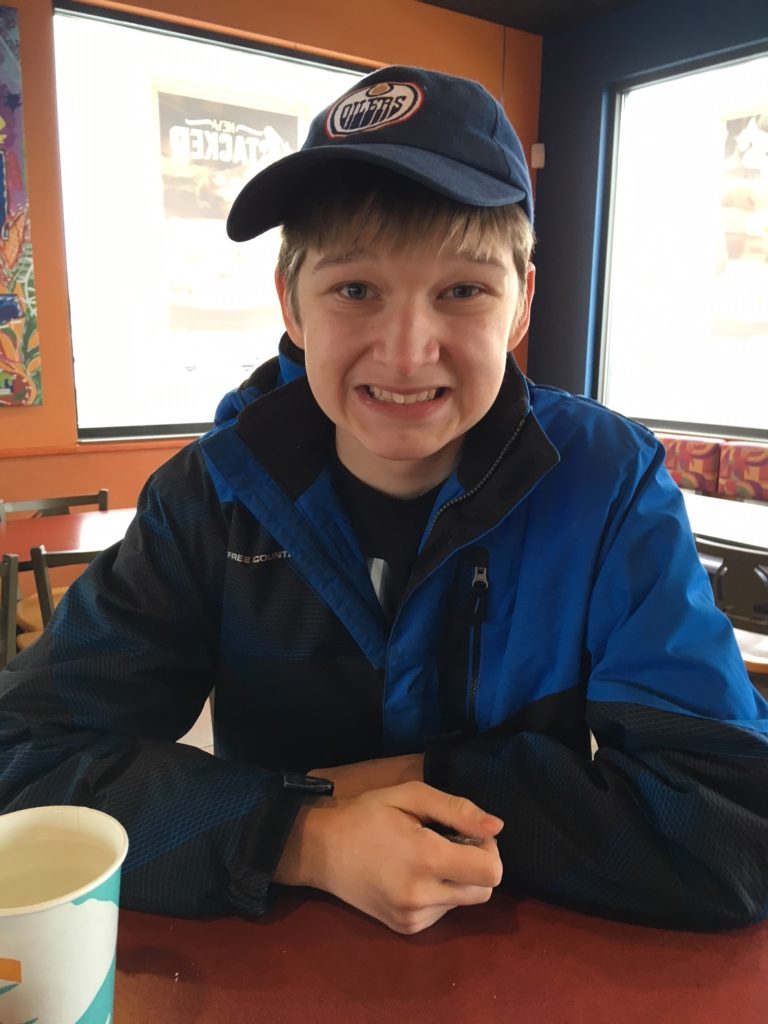
Lesson 1: Studying for the choir gave me a completely different understanding of J’s visual processing issues.
J’s choir final was a basic music theory final. Note names, identifying key signatures, circle of fifths, and intervals. We tried practicing all of those categories over the break but it was nearly impossible for J. For some reason, J couldn’t get past naming notes. And if you can’t read notes, you can’t figure out key signatures, you can’t figure out major/minor intervals…you get the idea.
So we worked on naming notes. Boy did we work on naming notes and I was beyond frustrated with J. He knew all of the “sayings” for lines and spaces (spaces spell face, lines spell every good boy deserves fun). But it wasn’t translating. I’d physically put his finger on the note and say “now count up and say every good boy deserves fun” and he couldn’t do it. He’d say the saying for spaces instead of lines or skip words and come up with the wrong note EVERY SINGLE TIME. We spent a good half hour on the iPad trying to make it work. J didn’t throw a fit, but it got to the point where he had tears running down his cheeks. He was almost terrified to select his answer.
The next day we tried again and he still couldn’t do it. Finally I started thinking outside of the FACE and EGBDF box and started realizing that memory wasn’t the problem–something else was. I took the music staff apart and drew two lines instead. “Can you draw a note on the line?’ He drew a circle on the line, just like he was supposed to. “Can you draw a note on the space?” I said, giving him a brand new set of two lines. He drew the note in the space perfectly. He knew the difference between lines and spaces. That wasn’t the problem.
“There must be too many lines,” I thought. I drew him a single note on a space and a single note on a line, each with their corresponding letters and pointed him back to the iPad and the note on the 5 line/4 space staff and said, “point to which picture this note looks like.” “This one,” he said, pointing to the note on the space. “Perfect,” I said, now count…”
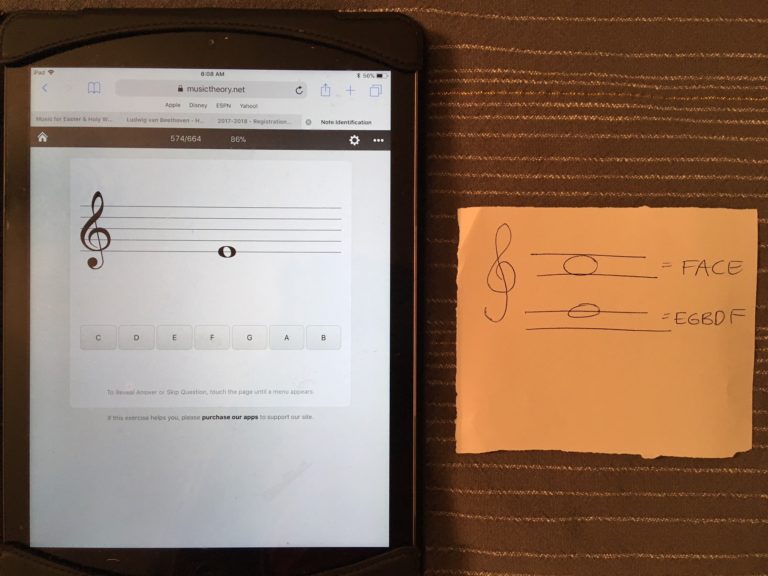
“It’s C,” he said before I could finish. And he was right. It was C.
We practiced this way for 5 minutes. In five minutes he had all of the note names memorized correctly. Lines and spaces. Every once in a while, he’d forget one, but he would look over at the sheet and get the right letter. Every single time. We practiced treble clef for on and off for the rest of the day and he knew it inside and out. I introduced the bass clef the next day, in the same way. Within 5 minutes he had the sayings down and could identify every single note on the iPad. “This is just like math,” J said as he was flying through the flash cards. “Yeah,” I said a little surprised by his comment. “I guess music and math are alike.”
He was confident. He knew his notes. “Perfect,” I thought, “we’re set for the test. And we’ve got 3 days extra to practice before the exam.”
J’s choir teacher was awesome and sent home a packet with note names to practice before the test. They worked on a few exercises in class. “He couldn’t name any of them,” his para said as I picked him up after school that day. “Really?” I said surprised. “We worked on these. He really knows them.”
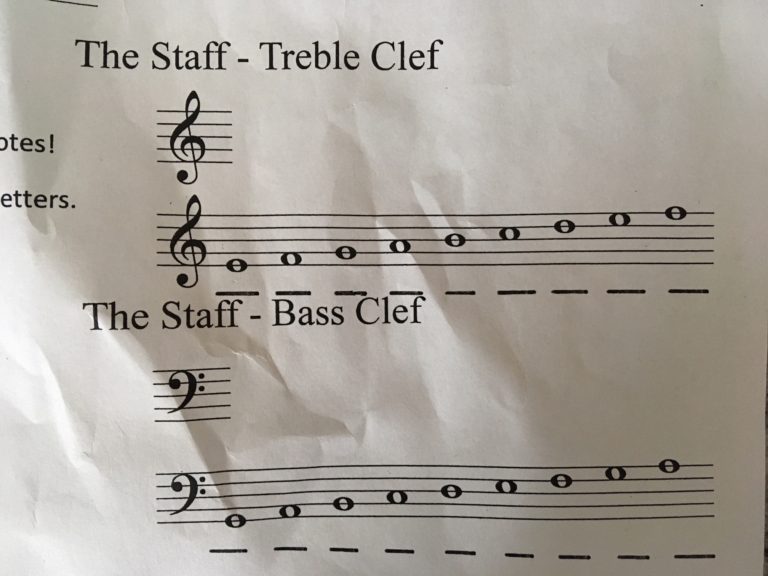
We tried the packed that night, and sure enough, J couldn’t read one note. I was NOT patient at this point. His test was in a few days and it was if he had never seen a music note in his life. “What’s wrong, J. Focus. Come on, you know this!” and of course, the silent tears came.
Steve came into the room and I expressed my frustrations with him. “Let me see the packet,” he said. “Have you tried covering up the rest of the notes? There’s a ton of notes on the line. You said you thought he had a hard time seeing the notes on the staff. When you practiced it on the iPad, there was only one note at a time to figure out.”
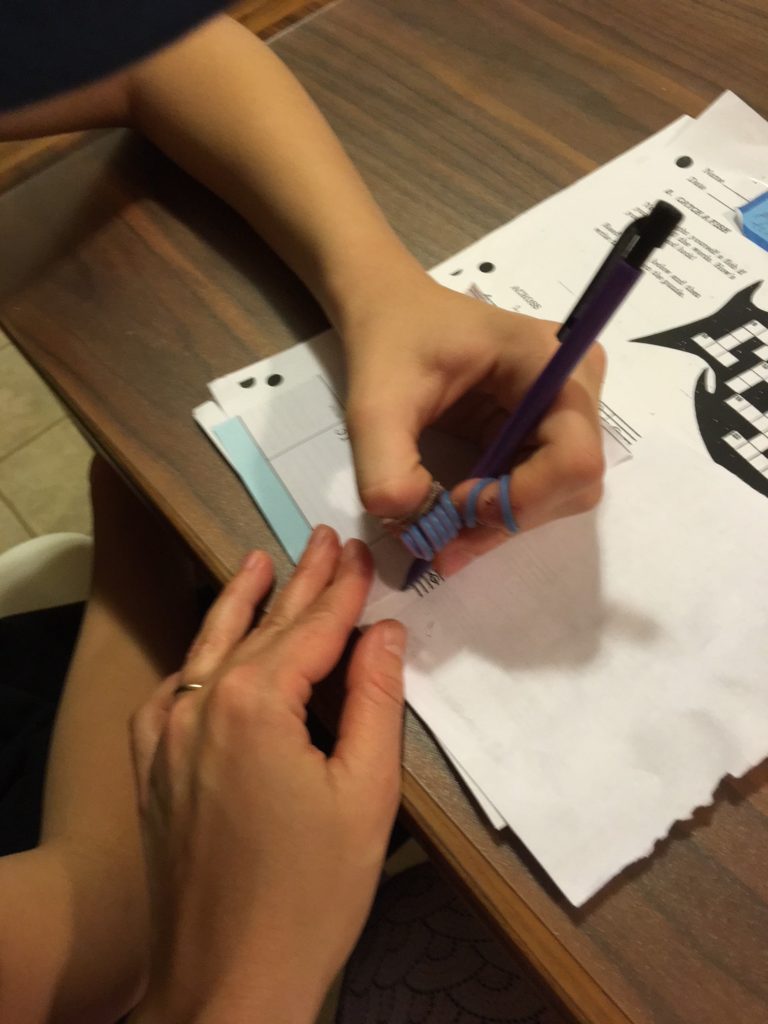
Sure enough, once we covered up the notes J wasn’t working on, he got the note names right with 80-90% accuracy on each line.
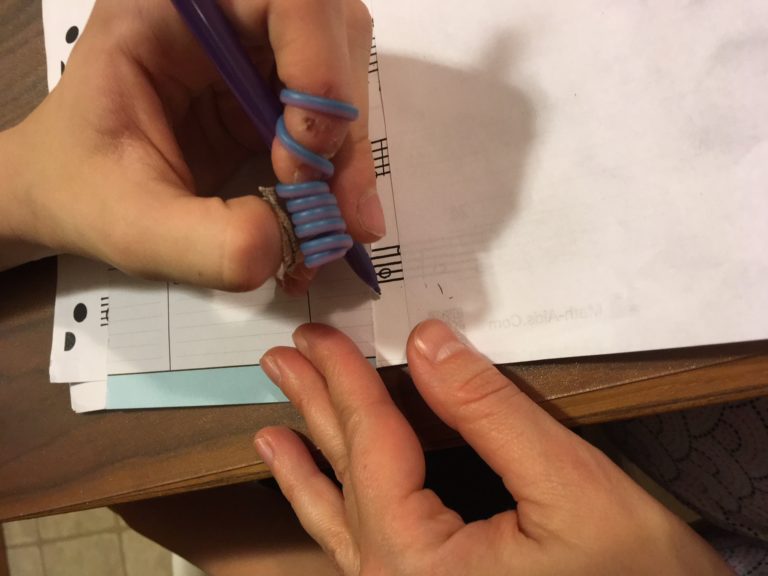
This choir final gave me a brand new insight into J’s visual processing struggles. I had only seen them manifest in math–the trouble lining up numbers, the incredible struggle he has with graphing (drawing graphs or finding that point on a line or axis). But I thought it was just “math struggles.” J has more than “math struggles” he has real visual processing struggles, and it seems like it has something to do with lines and circles. It makes me wonder if there are more visual struggles I don’t know about. Thank goodness for the choir final. It’s really easy to dismiss music and art as “less important” academic classes, but these are the classes that help us process our senses into meaningful ways. Identifying dots on lines and spaces in music is a similar skill–visually–to dots, lines, and spaces in math, and the choir final helped me realize this.
Lesson 2: J’s ability to sustain attention to a hard task and work through really hard things has hit an incredible threshold.
J had (on average) about 2 hours between tests. In that time we’d come home and work on studying for the next test. I’ve never seen J work so hard and push through without having a meltdown or giving up. I can’t tell you how many loose leaf pages we went through. J worked through dozens and dozens of math problems practicing for his test. It got to the point on Thursday morning where I was so sick of looking at Algebra problems, that I didn’t want to write out the next one for him to practice because I was so burnt out. But J continued, math problem after math problem. “This is just like summer school,” he said at one point (referring to an intensive version of Lindamood Bell we did at home over the summer).
Because J always throws an epic meltdown if he’s just “done” or “can’t do anything anymore,” I didn’t get any indication that he was “done” with studying. He didn’t complain, he just kept working. I dropped J off for the first half of his math test and walked back to my car, my head mush from all of the practice–not just for math but all the other exams–and that’s when it hit me. If my head feels like mush, J’s head has definitely got to feel like mush.
And it was. The poor kid sat down to the test and just couldn’t do one more math problem. The last night of finals we took the entire evening off. Apparently he was in a much better place mentally for day 2 of the math final.
We’ve got to find a new way of communicating. I’m so used to J telling me through a meltdown that he’s done, that I guess I need to learn how to communicate with the “I’m going to keep pushing myself no matter what” and help him recognize when to stop while he’s still ahead.
I’m so glad for this finals week. It gave me 2 new really big insights into J, not in any way that will help his grades, but that will help me interact with my son better in more helpful and meaningful ways.
